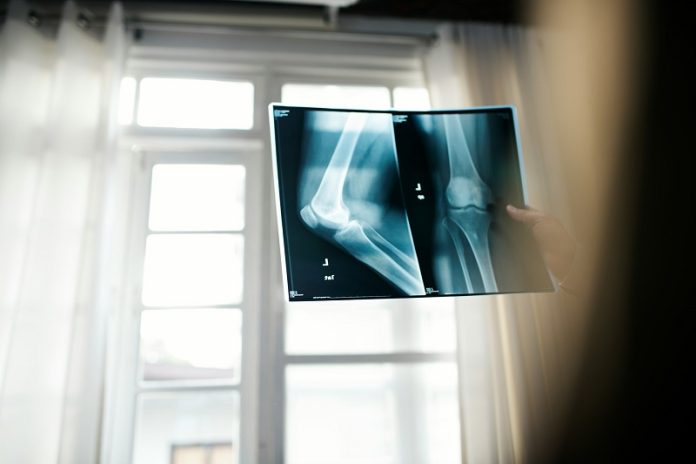
A recent analysis suggests that taking a low dose of colchicine daily could lower the chances of needing total knee or hip replacement surgeries.
This finding comes from the LoDoCo2 (Low-Dose Colchicine 2) trial and was published in the Annals of Internal Medicine.
The study sheds light on the role of inflammation in the progression of osteoarthritis and suggests that colchicine, a drug commonly used for other inflammatory conditions, might offer benefits for managing this joint disease.
Osteoarthritis is the most common joint disease, often developing after wear-and-tear injuries or trauma to weight-bearing joints like the knees and hips.
It is linked to low-grade inflammation, which contributes to joint damage over time.
While anti-inflammatory treatments have shown promise in slowing the progression of osteoarthritis, colchicine is not currently recommended for this condition.
Despite its proven effectiveness in treating other inflammatory diseases, researchers are still exploring its long-term safety and benefits for osteoarthritis.
The LoDoCo2 trial, conducted by researchers from Sint Maartenskliniek and Radboud University Medical Center in the Netherlands, included 5,522 participants aged 35 to 82.
The participants were randomly assigned to take either 0.5 mg of colchicine daily or a placebo over an average follow-up period of about 28.6 months. The results revealed that 2.5% of those taking colchicine underwent knee or hip replacement surgery, compared to 3.5% in the placebo group.
While this difference may seem small, it is significant for a disease as widespread as osteoarthritis. The findings were consistent among men, but the study did not have enough participants to determine whether women would experience similar benefits.
Colchicine’s potential lies in its ability to reduce inflammation, which could slow the progression of osteoarthritis.
The drug already has a favorable safety profile and is widely used for conditions like gout and heart disease. However, more research is needed to confirm these findings and understand how long-term use might affect osteoarthritis patients.
In the broader context of joint health, it’s worth noting that other factors, such as diet and nutrition, also play a role in managing conditions like osteoarthritis.
For example, studies suggest that vitamin K deficiencies are linked to a higher risk of hip fractures in older adults, and addressing such deficiencies could improve bone health.
Similarly, krill oil has shown potential benefits for muscle health in aging individuals, and eating yogurt may reduce frailty among older populations.
While the LoDoCo2 trial highlights colchicine’s promise as a treatment option, further studies will help determine its role in managing osteoarthritis.
For now, these findings open new avenues for reducing the burden of joint surgeries and improving the quality of life for people with this common condition.
If you care about pain, please read studies about vitamin K deficiency linked to hip fractures in old people, and these vitamins could help reduce bone fracture risk.
For more information about wellness, please see recent studies that Krill oil could improve muscle health in older people, and eating yogurt linked to lower frailty in older people.
Copyright © 2024 Knowridge Science Report. All rights reserved.



